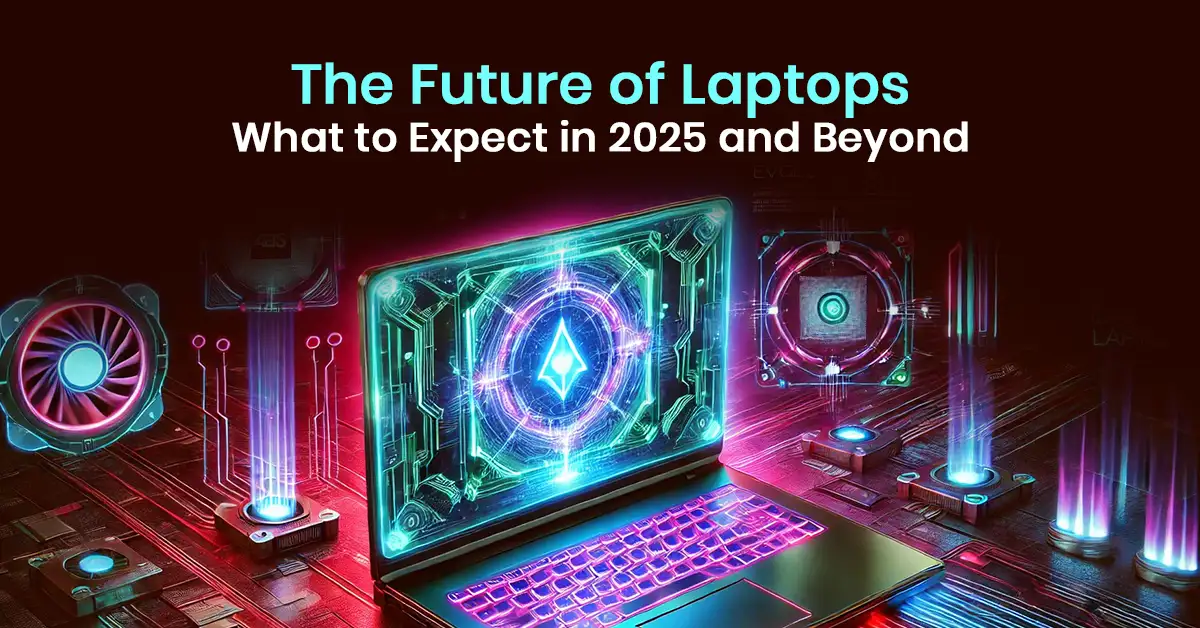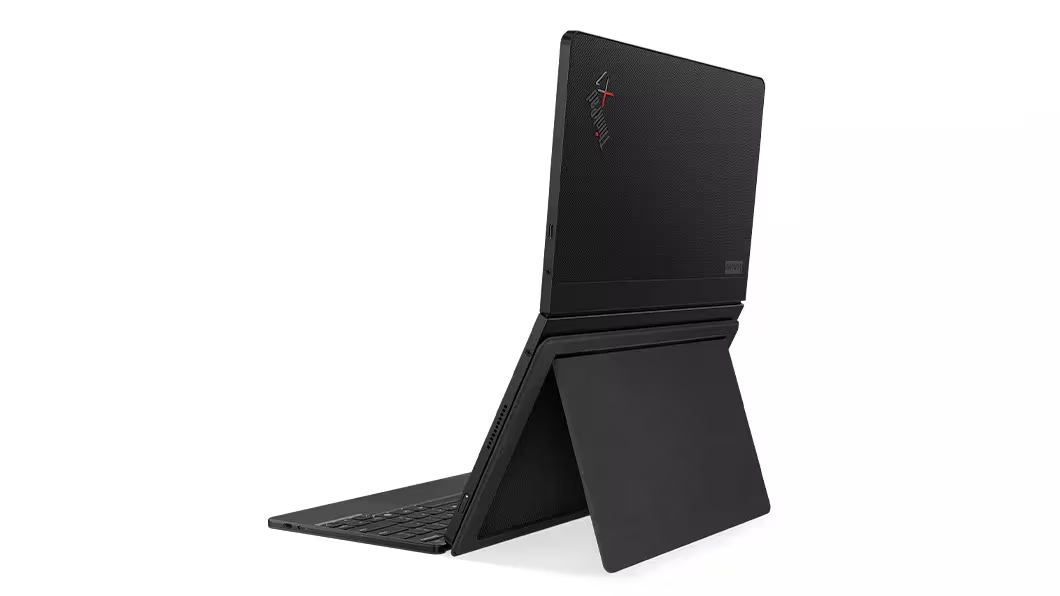The Future of Laptops – What to Expect in 2025 and Beyond

The world of laptops is constantly evolving, with new technologies shaping the way we work, game, and create. As we move into 2025 and beyond, laptops are expected to become more powerful, efficient, and adaptable to modern user needs. Whether you’re a student, professional, or gamer, understanding what the future holds for laptops can help you make informed decisions when upgrading your device.
With advancements in AI integration, foldable displays, ARM-based processors, and eco-friendly materials, laptops will continue to push the boundaries of innovation. In this article, we explore the upcoming trends and breakthroughs in laptop technology that will redefine the industry in the coming years.
Key Trends in Laptop Technology for 2025 and Beyond
The future of laptops is all about innovation, convenience, and sustainability. Here’s a breakdown of what to expect in 2025 and beyond:
1. Foldable and Dual-Screen Laptops
Foldable technology is expected to become mainstream in laptop design, with features such as:

- What’s Changing? Foldable screens are no longer just for smartphones. Laptops with flexible displays or dual screens will become more common, offering larger workspaces without the bulk.
- Why It Matters? These designs will make laptops more portable and versatile, perfect for multitasking or creative work.
- Example: Imagine unfolding your laptop to reveal a 17-inch screen or using one screen for typing and another for reference material.
Companies like Lenovo (ThinkPad X1 Fold) and ASUS (ZenBook Duo) are leading the charge in this space, and we can expect more refined and affordable options in the near future.
2. AI-Powered Laptops
Artificial Intelligence is set to play a significant role in the future of laptops, offering:
- What’s Changing? Artificial Intelligence (AI) will be integrated into laptops to enhance performance, battery life, and user experience. Smart assistants integrated directly into the OS for hands-free productivity.
- Why It Matters? AI can optimize tasks like video editing, voice recognition, and even security, making laptops smarter and more efficient.
Major manufacturers like Apple, Microsoft, and Dell are already working on AI-driven laptops to enhance user experience and streamline operations. Your laptop might automatically adjust settings based on your usage patterns or provide real-time language translation during video calls. Also read the future of AI technology on laptop.
3. Improved Battery Technology
- What’s Changing? Battery life has always been a pain point for laptop users. By 2025, we can expect batteries that last longer and charge faster, thanks to advancements in solid-state and graphene-based batteries.
- Why It Matters? Longer battery life means more productivity and less time tethered to a charger.
- Example: A single charge could last up to 24 hours, even with heavy usage.
4. 5G Connectivity
- What’s Changing? 5G will become standard in laptops, offering lightning-fast internet speeds and seamless connectivity.
- Why It Matters? This will be a game-changer for remote workers, gamers, and anyone who relies on cloud-based applications.
- Example: Downloading large files or streaming 4K videos will take seconds, not minutes.
5. Eco-Friendly Designs
- What’s Changing? Sustainability will be a key focus, with manufacturers using recycled materials and designing energy-efficient laptops.
- Why It Matters? Eco-friendly laptops will help reduce electronic waste and carbon footprints.
- Example: Laptops made from recycled aluminum or biodegradable components will become more common.
6. Enhanced Security Features
- What’s Changing? Biometric authentication (like facial recognition and fingerprint scanning) will become more advanced, ensuring better security.
- Why It Matters? Protecting your data will be easier and more reliable.
- Example: Your laptop might use AI to detect and prevent cyber threats in real-time.
7. Augmented Reality (AR) and Virtual Reality (VR) Integration
- What’s Changing? Laptops will support AR and VR applications, opening up new possibilities for gaming, education, and professional training.
- Why It Matters? This will make laptops more immersive and interactive.
- Example: Imagine attending a virtual meeting in a 3D environment or exploring a virtual museum from your laptop.
8. ARM-Based and More Efficient Processors
With Apple’s M-series chips proving the potential of ARM-based computing, we will see:
- More energy-efficient processors offering longer battery life.
- Increased compatibility with mobile apps on laptops.
- Better heat management, reducing the need for bulky cooling systems.
Intel and AMD are also developing hybrid architectures that combine efficiency and performance cores, making laptops faster and more efficient than ever before
9. Holographic and Augmented Reality (AR) Laptops
As AR and VR technology advance, laptops will integrate features such as:
- Holographic displays for immersive interactions.
- Built-in AR support for professionals in design, gaming, and engineering.
- Gesture-based controls to enhance user experience and productivity.
Microsoft’s HoloLens and Lenovo’s ThinkReality already hint at a future where AR will be a standard laptop feature.
Conclusion
The future of laptops is exciting and transformative. With innovations in AI, foldable screens, energy-efficient processors, and sustainable materials, the way we interact with laptops will dramatically evolve in the coming years. Whether you’re looking for a device for work, gaming, or creative projects, staying updated on these trends will help you make smarter choices when investing in a laptop.
As 2025 approaches, we can expect lighter, faster, and more intelligent laptops that adapt to our daily needs, making technology more accessible and efficient than ever before.
Frequently Asked Questions (FAQs)
1. Will AI make laptops more expensive in the future?
AI-powered laptops may have a higher initial cost, but they will enhance performance and efficiency, making them a valuable long-term investment.
2. Are foldable laptops durable?
Yes, manufacturers are using reinforced hinges and durable materials to ensure foldable laptops can withstand daily use.
3. How will ARM-based laptops impact the industry?
ARM-based laptops will increase battery life, reduce heat, and improve performance, making them ideal for both casual and professional users.
4. Will 5G improve laptop performance?
Yes, 5G connectivity will allow for faster internet speeds, reducing lag in online work, gaming, and streaming.
5. When can we expect mainstream AR laptops?
AR laptops are still in development, but we may see consumer-friendly models by 2026-2027 as technology advances.
6: Are eco-friendly laptops as powerful as traditional ones?
Absolutely! Eco-friendly laptops are designed to be just as powerful, if not more so, while using sustainable materials.
7. Can I use AR/VR on any laptop?
A: Not all laptops will support AR/VR. You’ll need a laptop with advanced graphics capabilities and sufficient processing power.

